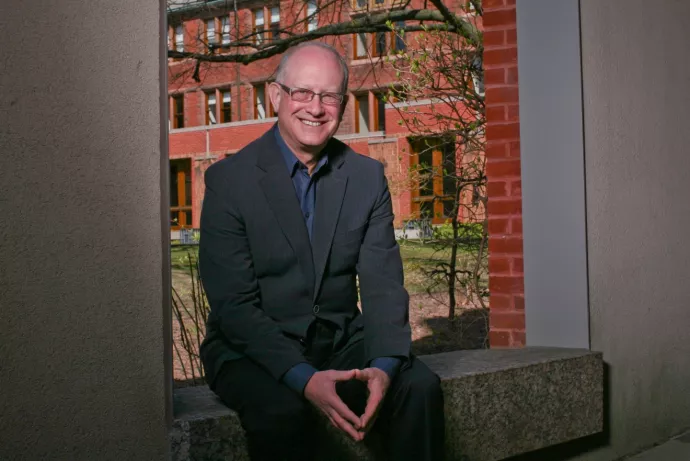Award-winning researcher to explore Canada's innovation challenges at annual UTM lecture

In its most recent Global Innovation Index, the World Intellectual Property Organization gave Canada a lacklustre grade of 54 per cent, putting it in 15th place out of 132 nations to trail behind the United States, Switzerland and others.
The Conference Board of Canada ranked Canada 11th out of 16 peer countries in its 2021 Innovation Report Card.
Even U.S. News & World Report, which places Canada second out of 85 countries in its 2023 Best Countries ranking, gives Canada weak scores for innovation and technological expertise.
Oh, Canada, why aren’t we keeping up with the world on innovation?
Few people can answer this question better than David A. Wolfe, a University of Toronto Mississauga political science professor who has studied national and provincial economic development policies and programs in Canada for more than 30 years. He has also edited or co-edited 10 books and written more than 50 scholarly articles on the subject, and founded and co-directs the Innovation Policy Lab at the Munk School of Global Affairs & Public Policy.
On Nov. 30, he’ll share his deep expertise on the return of industrial policy, Canada’s failed innovation strategy and place-based development policy at the 2023 Desmond Morton Research Excellence Lecture.
Much of Wolfe’s recent research has examined how well Canada is exploiting opportunities for economic advancement and social progress in the evolving digital economy. He was a member of an expert panel for the Council of Canadian Academies that assessed the state of research and development in Canada. He was also the lead investigator on a Social Sciences and Humanities Research Council of Canada-funded study examining how Canada is responding to the rapidly changing digital landscape.
In both projects, a main finding emerged: Canada has a weakness when supporting homegrown technology businesses.
“We don’t perform well in our ability to scale up technology companies. We can grow them to somewhere between $10 and $50 million in revenue, and then overwhelmingly, they tend to get bought out….We don’t grow them to a size where they can compete with U.S., German, French, Swedish and Swiss companies on a multinational global scale,” Wolfe says. “Technology is where future growth is going to come from, so the fact that we can’t help these companies grow is going to be a problem down the road for us.”
Wolfe is also concerned about Canada’s performance on other innovation metrics.
These include:
Business investment in research and development;
The number of new technology patents filed;
Government financial support of university-led research;
Research partnerships between post-secondary institutions and businesses;
Investments in developing technology markets such as electric vehicles.
Such failings are even more troubling at a time when industrial policymaking is advancing around the world, Wolfe says, with countries such as China, France, Japan, South Korea, Taiwan and the U.S. making greater investments in technologies across diverse sectors. He says Canada has made significant strides in biotechnology, quantum technology, genomics, nuclear fusion and AI, and he’d like to see this momentum continue and expand into other tech areas.
Wolfe also sees a need to promote more innovation in major urban areas. It’s a topic he addresses in the Master of Urban Innovation, a 20-month program at UTM he developed that looks at how to build dynamic, inclusive cities and foster innovation-based urban economic development.
“Place-based development policy is really critical for transforming the economic development trajectory of individual cities and regions,” he says. “When you have enough cities doing that, you can eventually change the national innovation performance.”
The annual Desmond Morton Research Excellence Award recognizes outstanding achievement in research and scholarly activity by UTM faculty members. Wolfe will deliver his lecture at 1 p.m. on Nov. 30 at the Collaborative Digital Research Space in the Maanjiwe nendamowinan building. Click to register



